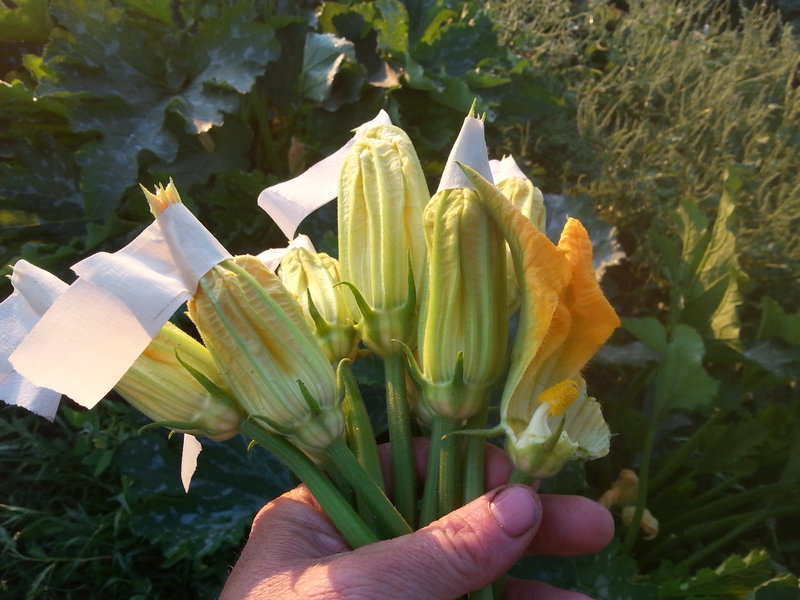Back to February 2016 Newsletter
Farmer-Led Breeding: The beauty of partnership and local seed development

Angie Koch
A locally focused alternative is Farmer-Led Breeding, which is rooted in collaborations between scientists and farmers, with breeding goals and criteria set by the farmers themselves. Petra Page-Mann and Matthew Goldfarb of Fruition Seeds have been developing farmer-led breeding partnerships in the Finger Lakes region of upstate New York. The farmers are responsible for all growing requirements: planting, cultivation, and fertilization. Petra and Matthew are responsible for all breeding requirements: selections, crosses, seed harvesting and cleaning, and germination testing. The partnerships result in an abundance of regionally adapted seed that the farmers can replant, and Petra and Matthew can sell through their seed company.
One example is their selective breeding partnership with farmer Nathaniel Thompson of Remembrance Farm. In 2013, Thompson approached Matthew and Petra to help him improve his Red Russian Kale. He cultivated approximately a third of an acre for salad mix, which he wanted to select for cold hardiness, vigorous spring regrowth, redder colour, and increased lobing for loft in his mixes. To meet these goals, the farmers allowed the kale to over-winter in the field so natural selection would remove the less hardy ones. In the spring, Matthew and Petra selected the survivors for colour and lobing, and rogued out any off-types. The selected population was left in the field, where it flowered and set seed, under Thompson’s care. Once ripe, the seed was collected and threshed by Fruition Seeds. Each year, the cleaned seed is divided to meet the farm’s needs for replanting, and the remainder is sold through Fruition Seeds as ‘Remembrance’ Red Russian Kale.
The partnership has led to some unintentional breakthroughs. For example, Thompson had a number of other unharvested greens overwintering in a field along with the kale. Several lettuces regrew in the spring and were selected to produce quality seed that was particularly adapted to Thompson’s soils, climate and production style. From this discovery, the team has worked together to develop a very cold-hardy ‘Remembrance’ salad mix, which they harvested for Thanksgiving in the field with no row cover in 2015. “And this,” declares Petra, “is why we focus on regionally adapted seed.
Farmer-led breeding is a promising model to develop regionally adapted varieties suited to growers who are not fully served by either the garden-scale seed packet trade or the global seed system. You can help encourage this sort of creativity. Ask your seed producer where your seed was grown and choose local varieties. Ask your favourite farmers where they purchase their seed, and let them know you’d like to support the development of a local food system that includes local seed.
**
Find out more about Fruition Seeds at www.fruitionseeds.com and about the Bauta Family Initiative on Canadian Seed Security’s Participatory Plant Breeding projects at http://www.seedsecurity.ca/en/126-participatory-plant-breeding-project.
Angie Koch is the coordinator of Seeds of Diversity’s Seed Library.
Not yet a member?
An annual membership to Seeds of Diversity gives you access to our seed exchange, seed grow-out programs, and our online news.

We depend on donations to do our work.

Thank you for your support!
